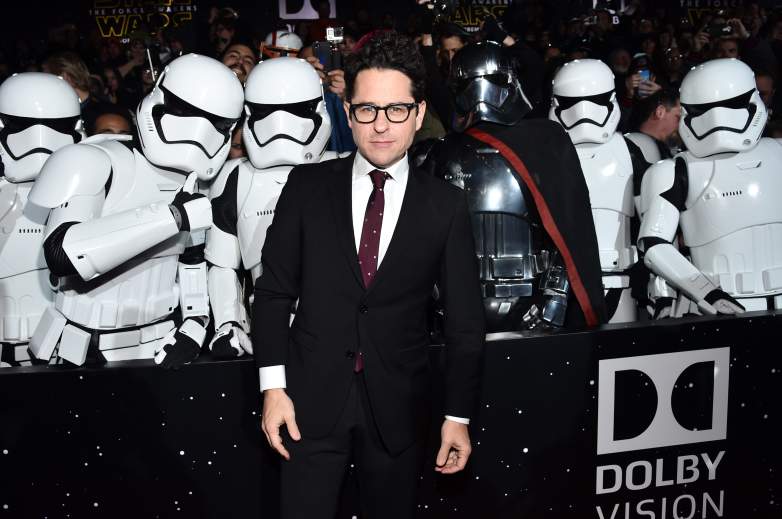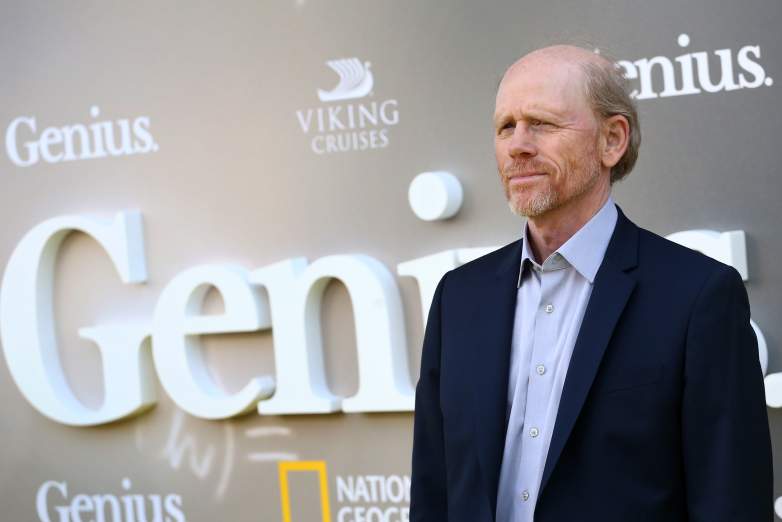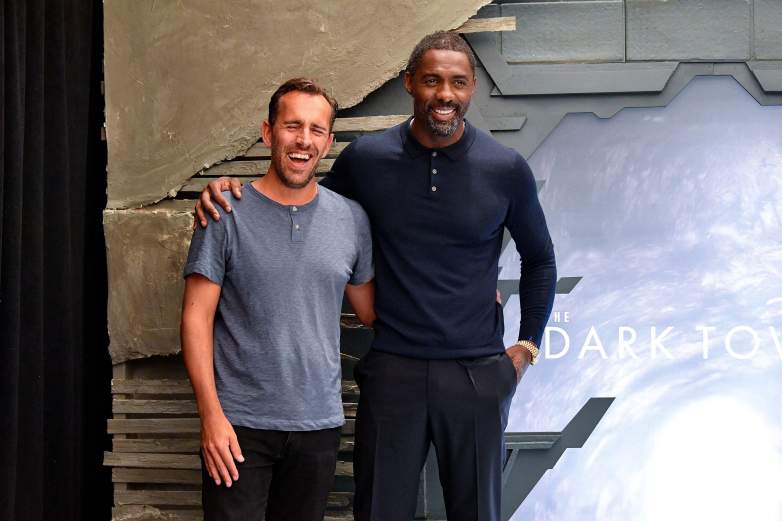The Dark Tower, Nikolaj Arcel’s adaptation of Stephen King’s popular fantasy series, is about to open in theaters. Fans of the books are quite nervous ahead of the movie’s first reviews dropping online, as this adaptation has been surrounded by negative buzz and reports of production issues.
The road to The Dark Tower arriving in theaters has been quite tumultuous, with the project going through multiple writers and directors over a 10 year period before finally landing at Sony with this latest incarnation. Their plan is to not only release a movie but also a TV series, which will feature Idris Elba reprising his role as Roland. Whether that TV series happens will largely depend on how this film does.
Ahead of The Dark Tower’s opening on Friday and the review embargo lifting tonight, here’s a look at the troubled production history of the Stephen King adaptation.
1. At First It Was Going to Be Adapted by J.J. Abrams & Damon Lindelof

GettyDirector J.J. Abrams attends the World Premiere of “Star Wars: The Force Awakens” at the Dolby, El Capitan, and TCL Theatres on December 14, 2015 in Hollywood, California.
Before we even got to Sony’s current Dark Tower adaptation, there were at least two other attempts at bringing the novels to the big screen going back 10 years. The first started in 2007, when it was announced that Stephen King had sold the Dark Tower rights to J.J. Abrams and Damon Lindelof, Entertainment Weekly reported at the time.
For years afterwards, Abrams and Lindelof talked about The Dark Tower off and on before saying in 2009 that they would work on it after Lost ended. However, Damon Lindelof always seemed a bit anxious about taking on the project. After all, he had spoken for years about how big a fan he was of The Dark Tower; the book series was an inspiration for Lost, which featured a sinister Man in Black in its final season. Lindelof said he was worried that he loved the source material too much to properly adapt it.
“My reverence for Stephen King is now getting in the way of what any good writer would do first when they’re adapting a book, which is take creative license in changing stuff,” Lindelof told MTV in May 2009.
The option that Abrams and Lindelof had purchased from Stephen King only lasted until the end of 2009, though, and at that point, Lindelof and Abrams said they would no longer be working on the project.
“You’ll be hard-pressed to find a huger fan of The Dark Tower than me, but that’s probably the reason that I shouldn’t be the one to adapt it,” Lindelof told The USA Today. “After working six years on Lost, the last thing I want to do is spend the next seven years adapting one of my favorite books of all time. I’m such a massive Stephen King fan that I’m terrified of screwing it up.”
J.J. Abrams subsequently confirmed that he would not be working on The Dark Tower anymore either. Abrams went on to instead work on an original science fiction movie, Super 8, before returning to the Star Trek franchise with Star Trek Into Darkness and eventually reviving Star Wars with The Force Awakens. Damon Lindelof, meanwhile, went on to work with Ridley Scott on his Alien prequel Prometheus, and he later created the critically-acclaimed HBO show The Leftovers.
2. Ron Howard Was Then Going to Adapt It

Director Ron Howard attends the Los Angeles Premiere Screening of National Geographics ‘Genius’ the Fox Theater on April 24, 2017 in Los Angeles, California.
Just a few months after Abrmas and Lindelof abandoned The Dark Tower, it became clear that plans to bring it to the screen would roll on. Deadline reported in April 2010 that Universal would make both a trilogy of films and a TV series based on The Dark Tower. Akiva Goldsman would be writing the script, and Ron Howard would be directing. Universal later confirmed this report.
When Abrams and Lindelof were working on the project, it was always something they talked about doing at some point in the future, but there was never a date locked in. However, with this new Universal plan, the studio announced that The Dark Tower would open on May 17th, 2013, according to Coming Soon.
In January 2011, Ron Howard said that the first film would be followed by a six-hour miniseries, according to Slashfilm. Soon, Javier Bardem was cast as Roland, The New York Post reported. However, in May 2011, Variety reported that the movie had “run into budgetary complications that have caused Universal execs to rethink original plans.” They were reportedly considering partnering with another studio on the project or giving it over to a different studio entirely. Ultimately, Universal decided they would stay with the project, but they were lowering the budget, and the script was being written so it could be less expensive.
Soon, production of The Dark Tower was pushed back, and finally, in July 2011, Universal dropped the project entirely, Deadline reported. However, Ron Howard said he was still going to try to get the movie made, and he was speaking with other studios about financing it. Warner Bros. reportedly expressed interest, but they ultimately passed on it.
Finally, Sony Pictures picked up The Dark Tower in 2015, with Nikolaj Arcel to direct and with a release date of January 2017. The script from the Ron Howard version of the project was going to be completely reworked, but Howard would stay on as a producer.
3. After Sony Was ‘Alarmed’ By Nikolaj Arcel’s First Cut, They Reportedly Considered Replacing Him

GettyDirector Nikolaj Arcel (L) and Idris Elba attend “The Dark Tower” photocall at the Whitby Hotel on July 30, 2017 in New York City.
Evidently, when director Nikolaj Arcel delivered an early cut of The Dark Tower, Media Rights Capital Co-founder Modi Wiczyk and Sony Pictures Entertainment Chairman Tom Rothman were “alarmed,” according to Variety.
At one point, they reportedly considered hiring another director to replace Nikolaj Arcel, who was seen as in over his head with the project. Arcel, director of films like A Royal Affair, had never been responsible for a production this large.
Ultimately, Variety reports that Sony and Media Rights Capital decided not to hire a new director because it would have been too expensive to do so.
4. Sony & Media Rights Capital Were Reportedly Intimately Involved With the Production
Instead of hiring a new director, Sony Pictures and Media Rights Capital evidently just got more involved in the production after being worried by Arcel’s first cut. Variety characterizes the whole process as being “plagued with problems and clashing visions,” and having “too many cooks in the kitchen.”
Variety also reports that Sony Pictures Entertainment Chairman Tom Rothman spent hours in the editing bay and that “executives from the studios remained heavily involved.” One of the problems was that the film was co-financed by both Sony and Media Rights Capital, and both of them had the rights to kill anything about the film they didn’t like.
“If one company didn’t like a trailer or a cut of the film, it had to be scrapped, making it difficult to achieve consensus,” Variety reports. “It’s a rare type of partnership, with the kind of sign-off that few production companies enjoy.”
5. Test Screenings Reportedly Went Badly & The Movie Was Delayed Twice
Another part of Variety’s report was that when The Dark Tower was screened for three separate audiences last October, viewers rated the film poorly. These were “blind screenings,” meaning that the viewers are not selected based on whether they are fans of Stephen King, fantasy, the actors involved, etc.
Evidently, the audiences in these test screenings were confused by the film’s mythology. So the studios spent $6 million on reshoots in order to add backstory about Roland’s hatred for The Man in Black. In addition, five minutes of exposition was cut, and a new scene was added in order to “combine ideas that had been sprinkled throughout the picture.”
Also of concern to fans is the fact that the movie was delayed two times. It was originally going to be released in February, but last fall, the movie was delayed until July, Entertainment Weekly reported. Then, just a few months ago, Sony delayed the movie again, moving it to August 4th. They swapped the released date with their other film, The Emoji Movie.
When The Dark Tower moved from Sony to Universal, the ambitious plan to adapt the books both as a film and a TV series remained, and a TV series following up the new movie is expected to be released in 2018. It’s hard to imagine that the show will still happen if The Dark Tower is a box office disaster, though.
But will The Dark Tower bomb? The production budget was only $60 million, meaning Sony and Media Rights Capital could still make their money back even if the film does not blow away expectations. At the moment, The Dark Tower is expected to make between $20 million and $25 million this weekend, according to the Los Angeles Times. This means that it will make less money in its opening weekend than The Emoji Movie, which raked in $24 million. However, The Dark Tower could potentially build up some momentum throughout the month of August, during which there is little competition; this will depend largely on the critical reception and on word of mouth.
